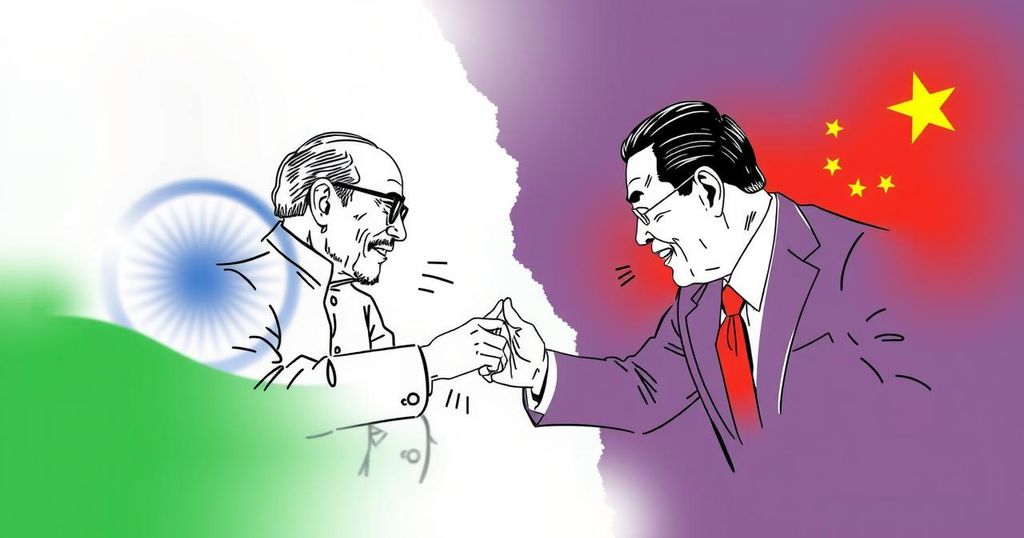India and China have reached an agreement to de-escalate border tensions through new patrolling arrangements along their disputed Himalayan border, as confirmed by India’s Foreign Secretary, Vikram Misri. This agreement seeks to address issues stemming from the 2020 Galwan Valley clashes, a pivotal moment in the relationship between the two nations.
India and China have reached an agreement to implement patrolling arrangements aimed at de-escalating tensions along their disputed Himalayan border. This development was announced by Vikram Misri, India’s Foreign Secretary. He specified that the two countries have concurred on disengagement and the resolution of various issues stemming from the border disputes that flared up in 2020, particularly following the violent clashes in the Galwan Valley that resulted in casualties for both sides—an unprecedented occurrence since the 1975 confrontation. In his address, Mr. Misri stated, “An agreement has been arrived at on patrolling arrangements along the Line of Actual Control (LAC) in the India-China border areas, leading to disengagement and a resolution of the issues that had arisen in these areas in 2020.” The specifics of the disengagement process remain undisclosed, including whether it will address all conflict points along the border. This announcement precedes Indian Prime Minister Narendra Modi’s upcoming visit to Russia for a meeting of BRICS nations, which comprises Brazil, Russia, India, China, and South Africa. Despite his significant remarks, Mr. Misri did not indicate whether a bilateral meeting between Prime Minister Modi and President Xi Jinping of China was planned. This statement marks a crucial step forward in the bilateral relationship between India and China since the intense Galwan Valley incident, considering that previous rounds of diplomatic and military discussions had not achieved substantial resolutions over the preceding years. Incidents of conflict have continued, including skirmishes in the northern Sikkim region in 2021 and further altercations in the Tawang sector in 2022. The ongoing border tensions have persistently impacted India-China relations, with historical roots tracing back to the 1962 border war in which India faced significant defeat. Moreover, competitive infrastructure development along the extensive, ill-defined 3,440 km border has exacerbated tensions, as shifting geographical features frequently bring troops from both nations into close proximity, contributing to confrontational episodes.
India and China share a long and complex historical relationship that has been marred by territorial disputes, particularly over their mountainous border region. The two countries engaged in an armed conflict in 1962, resulting in a significant territorial loss for India. Tensions resurfaced with the Galwan Valley incident in 2020, leading to the first loss of life along the border since 1975. Ongoing skirmishes, military standoffs, and political disputes have characterized their relationship in recent years, complicating diplomatic efforts and impacting bilateral trade. Attempts at dialogues have seen little success until this recent announcement regarding new patrolling arrangements, indicating a potential pathways towards resolving longstanding issues.
In conclusion, the recent agreement between India and China to enhance patrolling arrangements along their disputed border signals a noteworthy effort to mitigate longstanding tensions that have plagued their relationship for decades. The commitment to disengagement and resolution of disputes from the 2020 conflicts could pave the way for better diplomatic ties, although the lack of detail regarding the disengagement process leaves some uncertainties. Continued dialogue and cooperation between these two populous nations are essential for ensuring regional stability, as they navigate the complexities inherent in their lengthy and contested border.
Original Source: www.bbc.com






